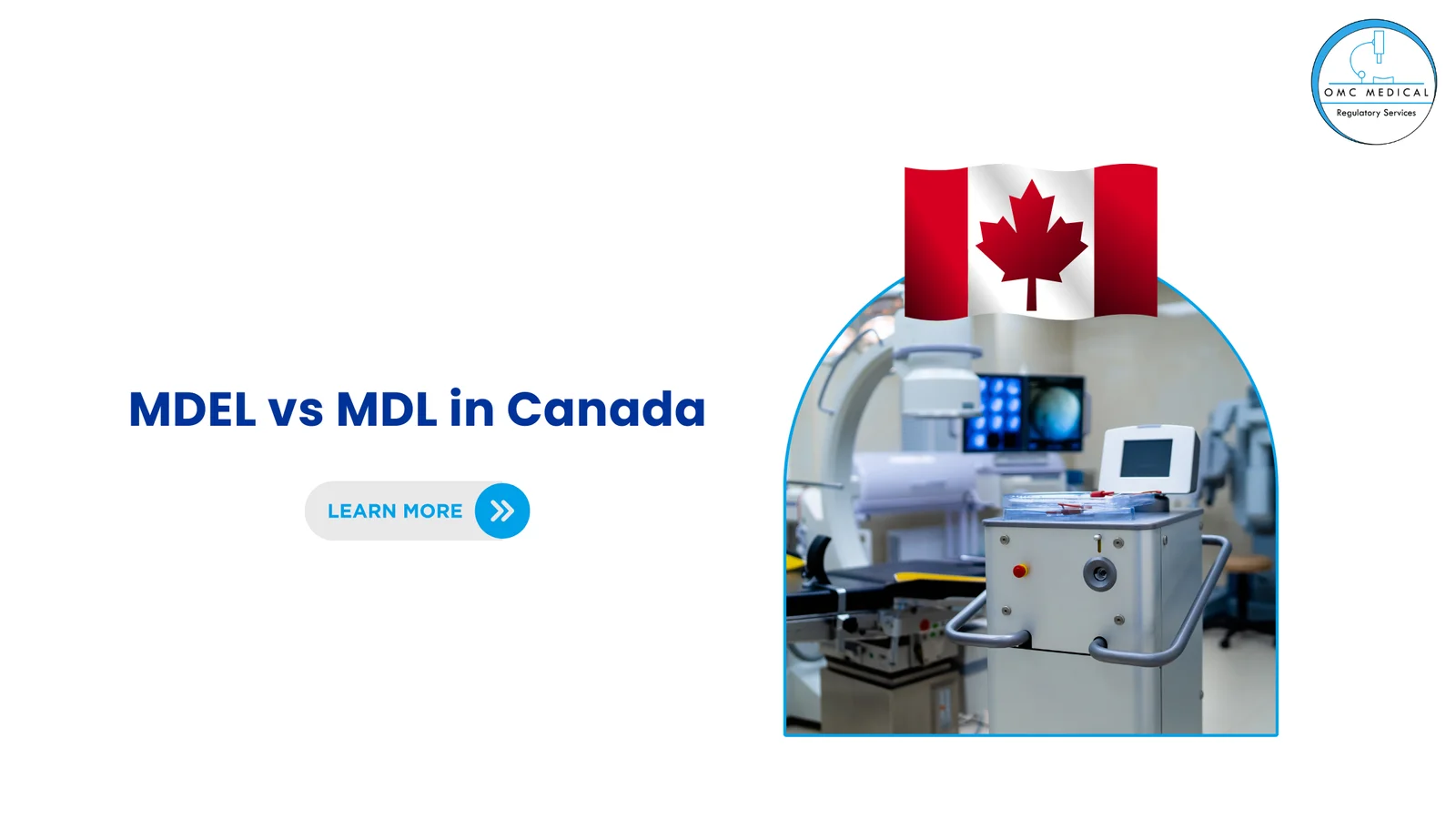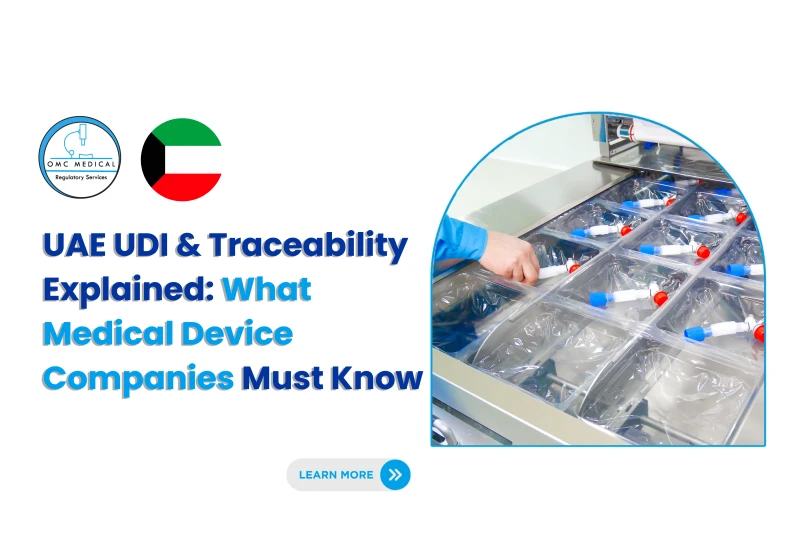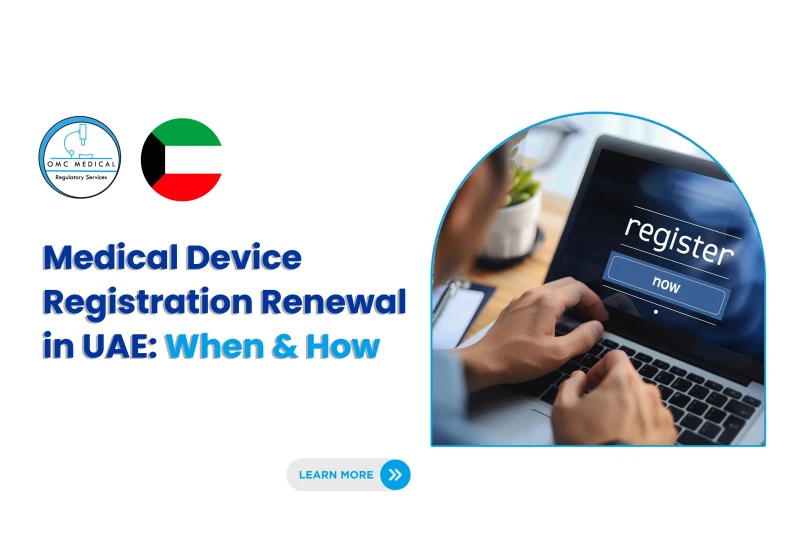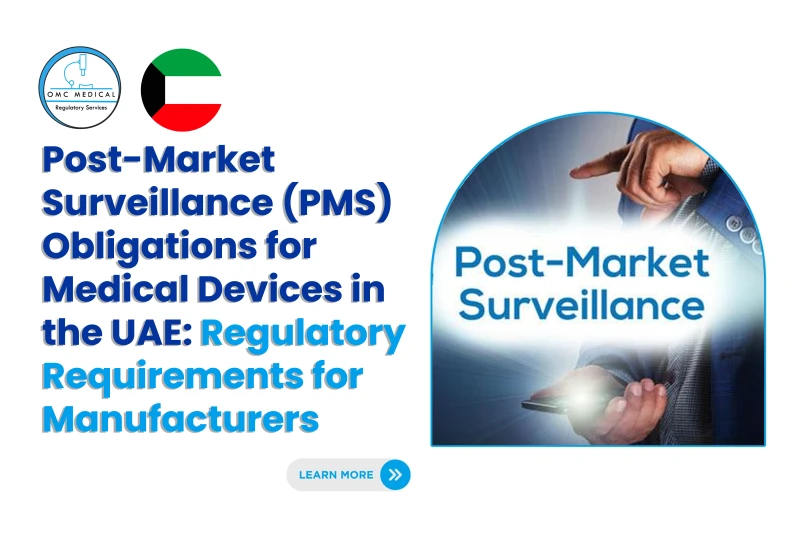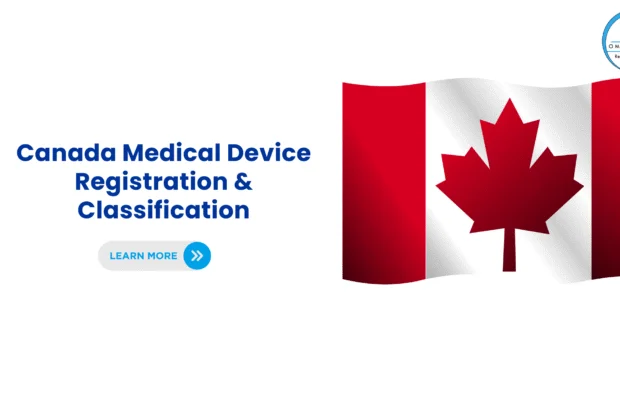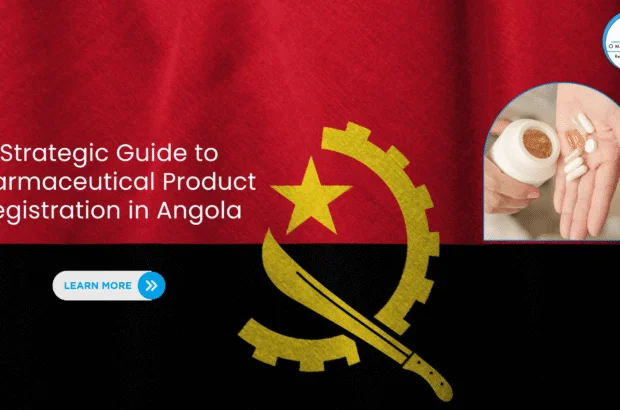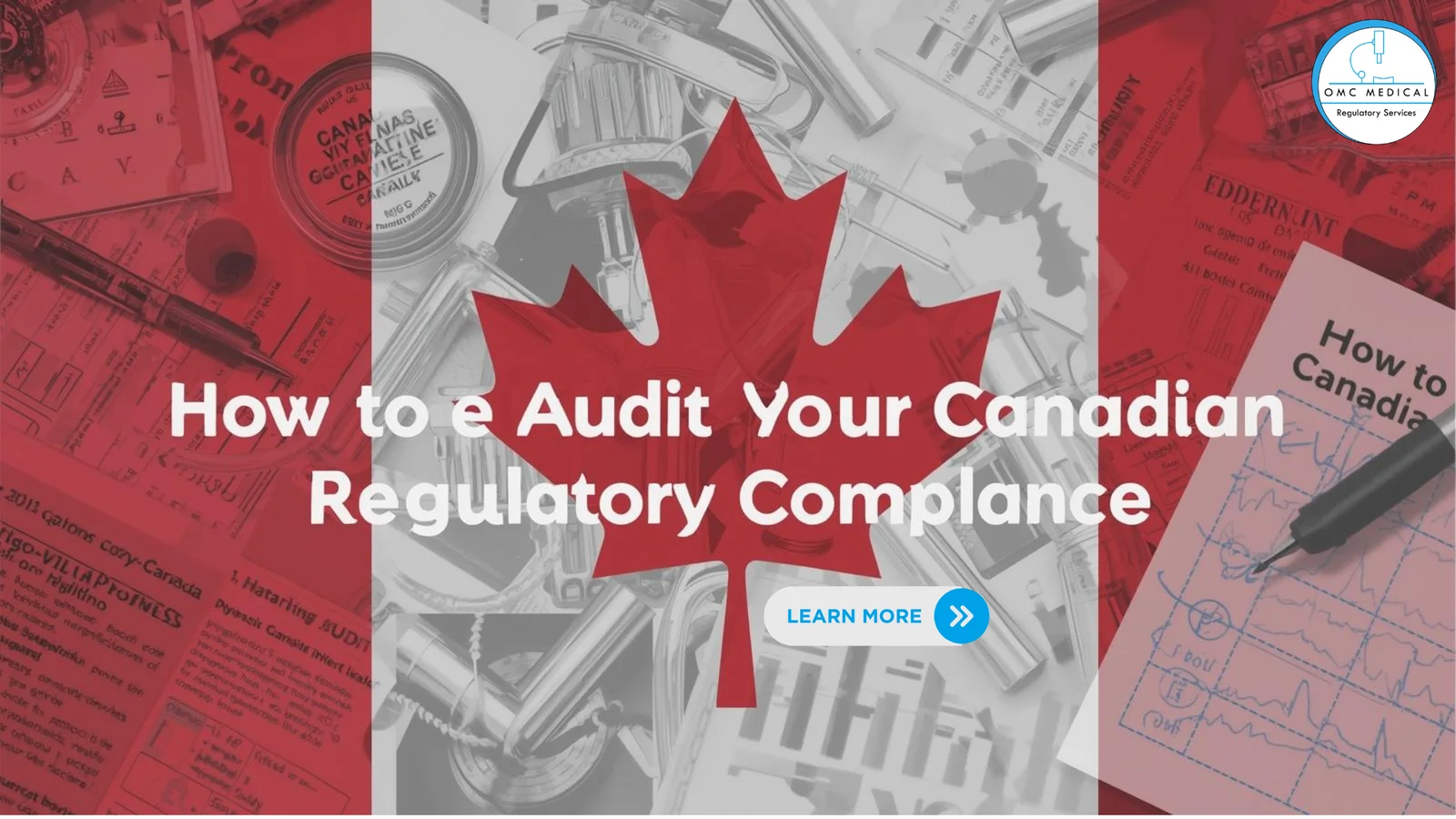For any company planning to sell or distribute medical devices in Canada, understanding the country’s licensing framework is essential. Health Canada requires medical device companies to hold the appropriate licences — but two terms often create confusion: MDEL and MDL.
They might sound similar, but these two licences serve very different purposes. Knowing which one applies to your product or business model is the first step to compliance — and to entering the Canadian market smoothly.
Understanding the Basics: What Are MDL and MDEL?
Before you begin your registration journey, it’s important to distinguish between the Medical Device Licence (MDL) and the Medical Device Establishment Licence (MDEL).
Medical Device Licence (MDL)
An MDL is issued for the device itself. It applies to manufacturers of Class II, III, and IV medical devices.
Health Canada reviews the device’s safety, effectiveness, and quality before granting approval. Essentially, the MDL confirms that your product meets all regulatory and performance standards to be sold legally in Canada.
Ready to Streamline Your Regulatory Compliance?
Join hundreds of companies who trust OMC Medical for their regulatory needs. Get expert guidance and ensure compliance across all markets.
Call Now +44 208 066 7260Medical Device Establishment Licence (MDEL)
The MDEL, on the other hand, is issued to the company or establishment that imports or distributes medical devices. It is not about the product — it’s about the organization’s ability to handle medical devices responsibly within Canada.
Any importer, distributor, or Class I manufacturer must hold a valid MDEL before conducting business.
The Key Difference: Device vs. Establishment
To put it simply:
- MDL = Licence for the Product
- MDEL = Licence for the Business
While the MDL authorizes the sale of a specific medical device, the MDEL allows a company to legally import or distribute those devices within Canada.
Think of it this way: if your product is the passenger, the MDL is its ticket — and the MDEL is the bus operator’s permit to run the route.
When Do You Need an MDEL?
You’ll need an MDEL if your company is involved in:
- Importing or distributing any class (I–IV) of medical devices in Canada
- Manufacturing Class I devices for commercial distribution
- Re-selling medical devices obtained from other manufacturers
Even if the product already holds an MDL, your Canadian importer or distributor must still have an active MDEL. Without it, your product cannot legally reach the Canadian market.
When Do You Need an MDL?
You’ll need an MDL if you are the manufacturer of Class II, III, or IV devices.
Health Canada assesses your submission, including:
- Device classification and intended use
- Safety and performance evidence
- Quality management system (ISO 13485 certification)
Only after approval will you receive an MDL number — which must appear on your product label and documentation.
Can You Need Both MDEL and MDL?
Yes — many companies need both.
If your organization manufactures a Class II-IV device and also imports or distributes it in Canada, you must hold both licences:
- The MDL covers your product approval.
- The MDEL covers your operational compliance.
Failing to obtain one or both could lead to import refusals, shipment holds, or enforcement actions by Health Canada.
Common Scenarios
| Company Activity | Required Licence |
| Manufacturer of Class I device | MDEL |
| Manufacturer of Class II-IV device | MDL |
| Importer or distributor of any class | MDEL |
| Manufacturer + Importer/Distributor | MDL + MDEL |
MDEL vs MDL in Canada: Comparsion
| Feature | MDEL (Medical Device Establishment Licence) | MDL (Medical Device Licence) |
|---|---|---|
| Issued To | Companies or establishments involved in importing, distributing, or manufacturing Class I devices | Manufacturers of Class II, III, and IV medical devices |
| Purpose | Authorises a company to import or distribute medical devices in Canada | Authorises a specific medical device to be marketed and sold in Canada |
| Focus | The organization (business operations and quality systems) | The product (safety, effectiveness, and compliance) |
| Applies To | Importers, distributors, and Class I manufacturers | Manufacturers of Class II, III, and IV devices |
| Regulatory Authority | Health Canada, under the Medical Devices Regulations | Health Canada, under the Medical Devices Regulations |
| Quality System Requirement | Must demonstrate quality procedures for complaints, recalls, and distribution records | Requires ISO 13485 certification and complete technical documentation |
| Application Basis | Based on establishment activities (import, distribution, manufacture) | Based on device classification and risk level |
| Renewal | Annual review and renewal required | Valid until device changes or suspension; requires ongoing compliance |
| Label Requirement | MDEL number usually not required on product label | MDL number must appear on the device label and documentation |
| Inspection | Health Canada inspects establishments for quality and safety compliance | Health Canada reviews device submission before approval |
| Examples | A Canadian distributor importing medical devices from abroad | A manufacturer seeking approval for a new Class III diagnostic device |
| Common Mistake | Importing without holding an active MDEL | Marketing a Class II–IV device without obtaining an MDL |
| OMC Medical Support | Assistance with MDEL application, renewal, and audit readiness | Support for MDL submission, technical documentation, and ISO 13485 compliance |
How Health Canada Enforces Compliance
Health Canada routinely inspects establishments that hold an MDEL to ensure they follow the Medical Devices Regulations. Companies must maintain:
- Complaint-handling procedures
- Recall and reporting systems
- Documented quality controls
Similarly, manufacturers with MDLs must comply with ongoing post-market obligations, including incident reporting, quality updates, and label accuracy.
The Importance of Getting It Right
Misunderstanding these requirements can be costly. Companies that enter the market without the correct licence risk:
- Product seizure or import refusal at the border
- Delayed launches due to incomplete submissions
- Loss of reputation with distributors and health authorities
Early planning is crucial — and that’s where professional regulatory support becomes invaluable.
How OMC Medical Can Help
At OMC Medical, we help global manufacturers, distributors, and importers navigate Health Canada’s medical device licensing system.
Our services include:
- Determining whether you need an MDL, an MDEL, or both
- Preparing and submitting applications to Health Canada
- Guiding you through device classification, technical documentation, and ISO 13485 compliance
- Managing annual renewals, quality procedures, and post-market vigilance
Whether you’re a startup or a global brand expanding into Canada, OMC Medical simplifies the process — ensuring your devices reach the market faster and stay compliant at every step.
Final Thoughts
The difference between MDEL and MDL comes down to who and what is being licensed:
- MDEL covers the company handling medical devices
- MDL covers the product being sold
For smooth market entry, both must align — your business operations, product type, and regulatory responsibilities must be clearly defined.
Partnering with a trusted regulatory team like OMC Medical ensures you meet every Health Canada requirement confidently, efficiently, and on time.

